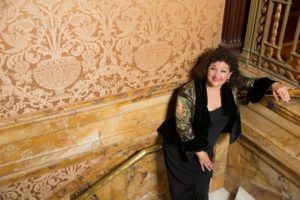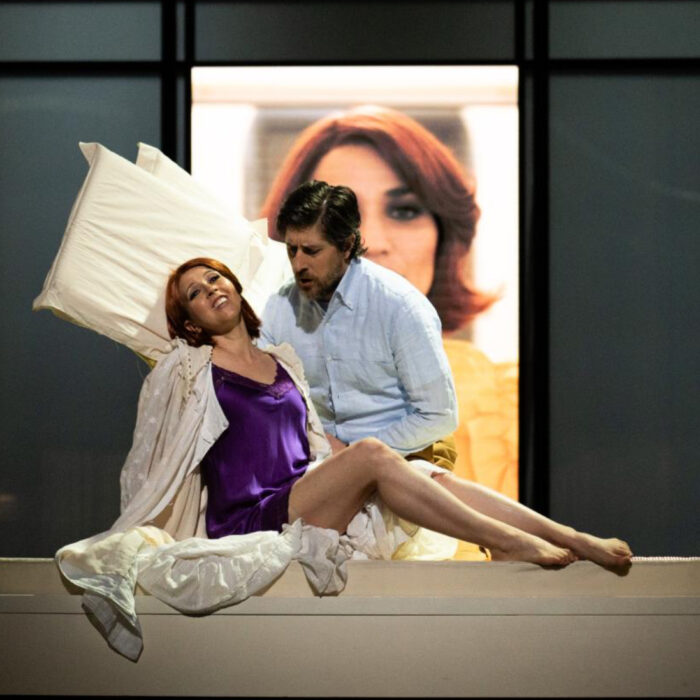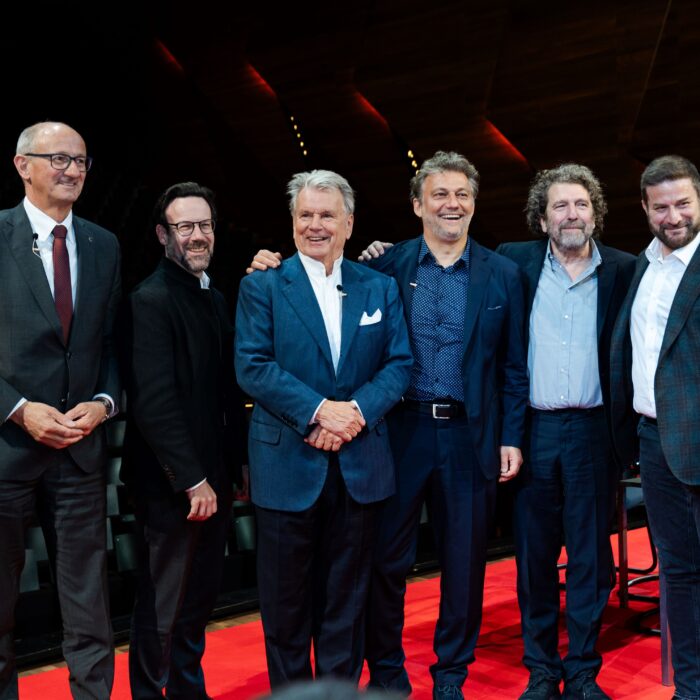
Q & A: Sharon Azrieli On The Azrieli Foundation’s Arts Initiatives
By Nicole KuchtaThe Azrieli Foundation, founded by late visionary David J. Azrieli in 1989, has sought to enrich the lives of future generations by investing in a wide variety of organizations across Canada and Israel. Celebrating its 30th anniversary this year, the Foundation improves the lives of present and future generations through education, research, healthcare and the arts.
In addition to offering generous aid to arts organizations in need, the Azrieli Music Prizes (the Azrieli Prize for Jewish Music and the Azrieli Commission for Jewish Music) were established in 2014 in an effort to discover and present quality compositions which explore music of the Jewish experience. Starting in 2020, a new prize will support Canadian composers whose work “creatively and critically engages with the challenges of composing concert music in Canada today,” according to the Foundation’s website.
OperaWire recently spoke with philanthropist and acclaimed soprano Sharon Azrieli to learn more about the Foundation’s dedication to supporting the performing arts.
OperaWire: Could you tell us about your role within the Azrieli Foundation? What kind of initiatives have you championed?
Sharon Azrieli: We have seven people on the Board of Directors, three of whom are sisters. I’m one of the sisters. In particular, I’m the one who is most interested in music and the arts. I take that role very seriously. I champion the arts and music, so pretty much anything you see which is having to do with that, you can guess it came from me!
OW: What inspired you to become involved in philanthropy?
SA: I would say my dad. We were inspired by him. I think most people in the world who do philanthropy probably learned it from their parents.
OW: How do you believe this organization is making an impact in the music world?
SA: Over the past ten years, we have given over $17 million to the arts and music. For example, we gave $2 million to the National Creation Fund at the National Arts Center in Ottawa. We gave to Domaine Forget in Quebec, which is a fabulous music school for young musicians. One of the most important aspects of that grant is that it has allowed young musicians to play with orchestras, which they otherwise wouldn’t have a chance to do in music schools.
The thing I’m most proud of is that I created the Azrieli Music Prizes. That is a prize which does not exist in the world. I said, I want to create something that does not exist to further creative music. What was fun about that was exploring the question of what is Jewish music. In a nutshell, we look at the compositions of composers of every religion, of every race, of every nationality – our submissions are coming from all over the world. We give out prize packages that are valued at $200,000 to each composer, so $400,000 in 2018 and $600,000 in 2020. We’ve given out our fourth prize already for composition. Now we’ve created a new prize for Canadian music, which is very exciting.
Another thing that I’m very excited about is that we focus on disadvantaged children, with the understanding that music can help them. I believe that music is a very important form of education. El Sistema is a form of musical education that was created in Venezuela. One of its most famous proponents is Gustavo Dudamel. There’s an El Sistema in Toronto that recently lost a commitment of funding from the Ontario government that compromised their ability to deliver programming to 50 students who they had just taken off their waiting list. The Foundation stepped in with a $175,000 annual grant for three years ($525,000 total) to ensure these students could get the musical education they need to build pro-social skills and aptitudes that will help lift them out of poverty, while also developing a love for music We believe in them. This is an after school program for disadvantaged children, and I believe very much that music is a way of developing the mind. It’s been proven.
OW: With regard to the Azrieli Music Prizes, what does the jury look for and what sort of qualities have you found in new Jewish and new Canadian music?
SA: First of all, we have a pre-selection process to make sure that the music meets the specifications – what is Jewish music, and what is Canadian music. Then the jury, comprised of top musicians, composers and conductors, look for the highest quality music, both technically and musically. We want to bring to the world the best music. In other words, we’re looking for the next great composition. We don’t want something that will just be played once and never be heard again, we want something that can be programmed in the great concert halls. We want to bring great music to the public.
OW: You performed at the AMP concerts in Warsaw and Prague. What did it mean to you to perform in these concerts? And what did these concerts represent to you?
SA: I’ve been performing for over twenty-five years. I have a career which spans the Canadian Opera Company and the Metropolitan Opera. I’m very, very happy to perform in the concerts. It’s an honor. As well as being an accomplished singer, I was also a Cantor in my life. The reason that I created the Jewish Music Prize is because I know a lot about Jewish music. At these concerts, I always sing examples of Jewish music. For example, in the concerts I will sing in Prague and Poland, I’m going to sing the work of Srul Irving Glick. He’s Canadian, and I will be performing two songs from his seven-song cycle – which, by the way, we just recorded on Analekta, a Canadian label. It is a beautiful series of songs written by a Canadian Jew. They are absolutely in keeping with what is Jewish music, not just because they are written by a Jew, but because of the subject matter. They are taken from the Songs of Solomon, Jewish literature.
OW: What do you see for the foundation’s music and arts granting in the next few years?
SA: In Montreal and Toronto we have given to over eight different organizations for impoverished children. I really want to see that grow. I actually have many ideas. I would like to create a program where every province of Canada has an opera company, and to create a “Music Mentorship Program” where small orchestras are able to find musicians to fill their orchestras where they need them. I’d like to create a program for El Sistema across Canada. There are a lot of programs that I’d like to create. The Foundation is committed to helping music and the arts in Canada, especially where it contributes to education and children’s well-being, in a way that fits its overall mission.
Categories
News

